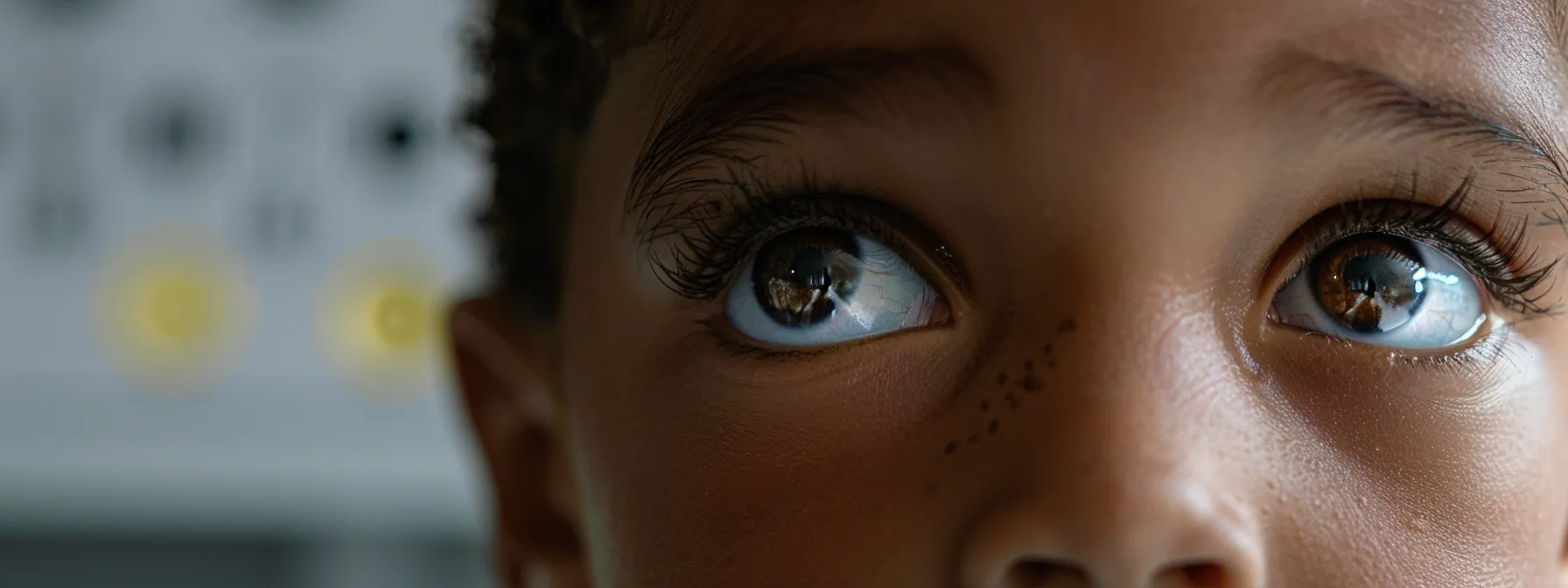An In-Depth Look on Hypertension Effects on Vision
High blood pressure, often referred to as hypertension, poses a significant risk not only to overall health but also to vision. Many individuals may not realize that hypertension can lead to serious eye problems, including ocular hypertension and arteriosclerosis, affecting sight. This article will explore the connection between hypertension and vision, identify common symptoms of vision changes, and evaluate long-term effects on eyesight. By understanding these issues, readers will gain insight into how managing hypertension can protect their vision and address specific concerns related to eye health.
- High blood pressure can lead to severe eye health issues, including vision loss and retinopathy
- Regular eye exams are crucial for early detection of vision changes linked to hypertension
- Lifestyle modifications, such as diet and exercise, significantly contribute to improved eye health
- Chronic hypertension poses risks for glaucoma, macular degeneration, and cataracts in patients
- Timely management of hypertension can help prevent long-term damage to vision and overall health
Understanding the Connection Between Hypertension and Vision Issues
High blood pressure can have significant effects on eye health, according to the fillmore eye institute. This section explores how hypertension impacts vision, identifying common problems like blurred vision and lens changes. It also delves into serious conditions associated with a hypertensive emergency, including potential vision loss linked to farsightedness. Understanding these connections can provide essential insights for patients managing hypertension.
How High Blood Pressure Affects Eye Health
High blood pressure can lead to a variety of eye health issues, primarily by affecting the blood vessels in the eyes. When hypertension occurs, it can cause damage to the central retinal vein, leading to conditions such as retinal vein occlusion. This situation can put pressure on the optic nerve, resulting in impaired vision or even blindness if not managed properly. Patients concerned about their eye health should consider lifestyle changes, such as weight loss and managing cholesterol levels, as these can mitigate some of the risks associated with hypertension:
- Impact of high blood pressure on ocular tissues.
- Risk of conditions like retinal vein occlusion.
- Importance of monitoring cholesterol and body weight.
- Strategies to maintain optimal eye health.
Common Vision Problems Linked to Hypertension
High blood pressure can lead to several common vision problems, with inflammation in the eye often being a significant factor. Conditions such as hypertensive retinopathy, where the retina is damaged due to high pressure in the blood vessels, can significantly affect vision clarity. Regular consultations with a health care provider are essential for individuals with hypertension, as they can help monitor these complications and suggest practical measures, including exercise and dietary changes, to enhance overall eye health.
Underlying Causes of Hypertension-Related Vision Loss
Hypertension-related vision loss can arise from several underlying causes, primarily affecting the structure and function of the eye. One significant issue is the development of a macular hole, which occurs when high blood pressure damages the retinal nerve fiber layer, leading to a loss of central vision. This condition can result in symptoms such as cotton spots in the vision and may even progress to tunnel vision if left untreated, underscoring the importance of regular health care check-ups for individuals at risk.
Recognizing Symptoms of Vision Changes Due to Hypertension

Early detection of vision impairment related to hypertension is vital for preserving eye health. Recognizing symptoms such as blurred vision and understanding the risks of sudden changes can greatly impact patient outcomes. Techniques like ophthalmoscopy and slit lamp examinations can aid in diagnosing underlying issues. Attention to associated conditions, like shortness of breath or kidney disease, highlights the importance of lifestyle adjustments in managing hypertension.
Learn to Spot Early Signs of Vision Impairment
Recognizing early signs of vision impairment related to hypertension is critical for maintaining eye health. Symptoms such as blurred vision hypertension can indicate underlying issues that may escalate into emergencies if left unchecked. Patients should monitor their vision for changes and consult a healthcare provider, especially if they experience additional symptoms such as headaches or shortness of breath, which may signal heart failure or other serious conditions. Adjusting salt intake and managing stress can also play a crucial role in controlling blood pressure and protecting the nerves in the eyes, further enhancing overall vision health.
How Hypertension Can Lead to Blurred Vision
Hypertension can lead to blurred vision by impacting the delicate blood vessels connected to the eyes. When blood pressure increases, it creates additional strain that may cause these vessels to swell or bleed, potentially resulting in conditions such as conjunctivitis or even more severe issues. Patients taking medication to control high blood pressure should be aware of this risk and monitor any changes in vision, as early detection is crucial for preventing further complications, including damage to the brain and loss of sight.
Understand the Risks of Sudden Vision Changes and Hypertension
Sudden vision changes in individuals with hypertension can signal serious health risks. These changes may arise from complications such as exudate formation and alterations in blood vessel function, potentially leading to severe conditions like an epiretinal membrane. Patients on antihypertensive medications should be particularly vigilant, as they may experience fluctuations in vision, including dilated pupils or the appearance of blurred spots, which necessitate prompt medical attention.
Evaluating the Long-Term Effects of Hypertension on Eyesight
Chronic high blood pressure can lead to serious, long-lasting effects on vision, particularly if left untreated. This section will analyze the chronic consequences of hypertension, focusing on conditions like retinopathy. It will also explore how sustained hypertension may impact the optic nerve over time, highlighting symptoms such as papilledema. Regular eye examinations are essential for monitoring these developments and determining appropriate therapy, as emphasized by the American Heart Association.
Chronic Consequences of Untreated High Blood Pressure
Untreated high blood pressure serves as a significant risk factor for various vision problems, particularly when it affects the optic disc and surrounding structures. Chronic hypertension can cause stress on the retinal vessels, leading to conditions such as retinopathy, which may result in blurred vision or even complete vision loss if not addressed effectively. Moreover, as individuals age, they may face increased challenges such as presbyopia, further complicating their eye health; thus, regular optometry check-ups become essential for monitoring these risks and implementing suitable management strategies.
Impact on Specific Eye Conditions Like Retinopathy
Retinopathy, a disease often linked to chronic hypertension, occurs when prolonged high blood pressure leads to ischemia in the retina, causing damage to the blood vessels. Individuals with worsening blood sugar levels along with hypertensive conditions face an increased risk of developing this eye complication. Additionally, factors such as smoking and pseudoexfoliation syndrome can exacerbate retinopathy, highlighting the importance of maintaining regular eye examinations and monitoring risk factors to protect vision effectively.
How Hypertension Affects the Optic Nerve Over Time
Hypertension can gradually damage the optic nerve, significantly impacting a patient’s vision over time. Advanced imaging techniques like optical coherence tomography (OCT) allow healthcare professionals to assess changes in the nerve’s structure, monitoring the health of the optic nerve and detecting issues early. Loss of visual fields may become evident as the artery supplying blood to the optic nerve is compromised, and understanding these effects is essential for predicting prognosis and implementing timely interventions to mitigate further vision deterioration.
Exploring Treatments for Vision Impairment From Hypertension
Effective management strategies for hypertension are crucial in preventing vision impairment. Regular eye exams play a significant role in monitoring eye health, specifically identifying indicators like cotton wool spots that suggest underlying issues. Lifestyle modifications, such as improved diet and exercise, can enhance both blood pressure control and vision, emphasizing the interconnectedness of these aspects.
Effective Management Strategies for High Blood Pressure
Effective management strategies for high blood pressure are vital in addressing vision impairment related to hypertension. Key approaches include maintaining a healthy weight through balanced nutrition and regular exercise, which can help regulate arterial pressure and protect ocular functions. Incorporating foods rich in protein and antioxidants may enhance choroidal blood flow, supporting overall eye health while advanced imaging techniques like tomography can assist practitioners in monitoring changes in the ocular structures:
Regular Eye Exams in Monitoring Vision Health
Regular eye exams are critical for individuals with hypertension, as they provide an opportunity to assess overall eye health and detect issues early. These examinations can reveal changes linked to conditions such as pigment dispersion syndrome, ensuring prompt intervention before severe vision impairment occurs. Patients should also discuss their diet and the potential influence of medications like semaglutide, especially if they wear glasses, to optimize their eye health and manage any related vision concerns.
Consider Lifestyle Modifications to Improve Both Blood Pressure and Vision
Adopting lifestyle modifications can significantly improve both blood pressure and vision health. Engaging in regular physical activity helps manage weight and enhance blood circulation, which is vital for maintaining optimal eye function. Additionally, a balanced diet rich in fruits, vegetables, and omega-3 fatty acids can support ocular drainage and overall eye health, underlining the importance of consulting a healthcare professional for personalized strategies.
- Regular exercise to maintain healthy blood pressure.
- Balanced nutrition, focusing on fruits and vegetables.
- Consultation with a physician for tailored healthcare strategies.
- Monitoring the effects of diet on blood drainage and vision.
Investigating Link Between Hypertension and Eye Diseases
High blood pressure poses several risks for eye health, leading to conditions such as glaucoma, macular degeneration, and cataracts. This section will examine the correlation between hypertension and glaucoma risk factors, discuss links between macular degeneration and elevated blood pressure, and analyze the prevalence of cataracts in hypertensive patients. Understanding these relationships is essential for effective eye care and management.
Examine the Correlation With Glaucoma Risk Factors
The correlation between hypertension and glaucoma risk factors is significant, as high blood pressure can increase intraocular pressure, a key component in the development of glaucoma. Patients with a medical history of hypertension should undergo regular visual field tests to assess potential damage to their eyesight. Management through appropriate medicine and lifestyle adjustments can help mitigate risks, especially for those who may not recognize the severity of this medical emergency. Prompt intervention is vital for preserving vision and preventing further injury associated with advanced glaucoma stages.
Macular Degeneration and Hypertension Connections
Research indicates a significant connection between hypertension and macular degeneration, a condition that can lead to vision impairment. Elevated blood pressure affects vital signs in the body, creating a risk for swelling and edema in the retinal tissues observed through a comprehensive fundus examination. Managing blood pressure through lifestyle changes and appropriate eye drops can help reduce the risk of developing macular degeneration, underscoring the importance of regular eye assessments to monitor the health of this essential organ.
Analyze the Prevalence of Cataracts in Hypertensive Patients
Research indicates that patients with hypertension are at an increased risk of developing cataracts compared to those with normal blood pressure. This connection is often exacerbated by the presence of chronic kidney disease, which can compromise overall eye health, including the cornea. Adopting a healthy diet that supports vascular health not only aids in managing blood pressure but also helps mitigate the risk of cataracts, highlighting the necessity of regular primary care check-ups to monitor vision health.
Strategies to Protect Your Vision While Managing Hypertension

Implementing dietary changes can significantly enhance eye health while helping to lower blood pressure. Regular exercises are also effective, benefiting both eyesight and overall cardiovascular fitness. Additionally, medication adherence plays a crucial role in preserving vision by preventing complications like bleeding and astigmatism. This section will delve into these strategies, providing practical insights for individuals managing hypertension.
Implement Dietary Changes to Support Eye Health and Lower BP
Implementing dietary changes is essential for supporting eye health and managing complications of hypertension. Nutrition plays a vital role in reducing blood pressure levels and can mitigate issues such as blurred vision and hypertension. A diet rich in fruits, vegetables, whole grains, and omega-3 fatty acids helps maintain optimal health for both the iris and the overall functioning of the eyes. This focus on healthy eating can empower individuals to take control of their eye health while effectively managing their blood pressure:
- Incorporate more leafy greens and fruits into daily meals.
- Choose whole grains over refined options to support vascular health.
- Include sources of omega-3 fatty acids, such as fish and walnuts.
- Limit processed foods high in sodium to help control blood pressure.
Explore Exercises That Benefit Both Blood Pressure and Eyesight
Engaging in regular exercise can significantly benefit both blood pressure and eyesight. Activities such as walking, cycling, and swimming promote cardiovascular health, helping to maintain lower blood pressure levels. For individuals with concerns about eye health, exercises that enhance circulation can support optimal oxygen flow to the eyes, potentially lowering the risk of complications that might require eye surgery later on.
Review the Importance of Medication Adherence for Vision Preservation
Adhering to prescribed medication is vital for individuals managing hypertension, as it significantly reduces the risk of vision loss. Medications recommended by healthcare providers help maintain healthy blood pressure levels, preventing complications such as retinal damage and blurred vision. Patients who consistently follow their medication regimen can better preserve their eyesight and overall health:
- Understanding the role of blood pressure medications in protecting vision.
- Recognizing the importance of routine medication schedules.
- Communicating with healthcare professionals about ongoing treatment.
Understanding the effects of hypertension on vision is crucial for maintaining overall eye health. High blood pressure can lead to various vision problems, including blurred vision, retinopathy, and increased risks for conditions like glaucoma and macular degeneration. Regular eye exams and proactive lifestyle modifications, such as a balanced diet and consistent exercise, can significantly reduce these risks. By actively managing blood pressure and monitoring eye health, individuals can preserve their vision and improve their quality of life. Contact Fillmore Eye Clinic to schedule your appointment today!




